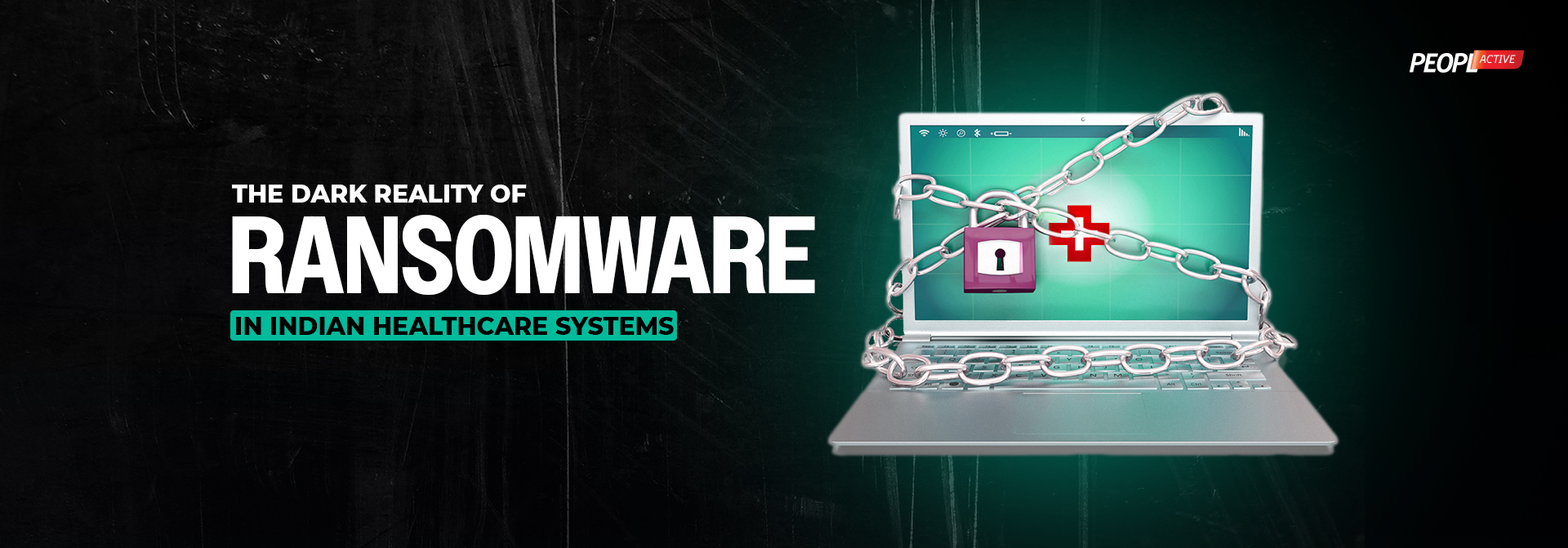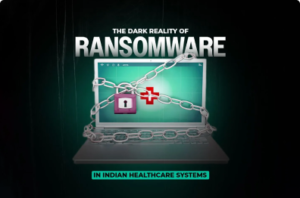

The Dark Reality of Ransomware in Indian Healthcare Systems
Recent years have seen healthcare organisations at the forefront of cyber-attacks. It isn’t uncommon to see headlines about ransomware. This is not a buzzword; it is a growing threat to the Indian healthcare system. Imagine walking into a hospital only to discover that its systems have been crippled and your health records are inaccessible. The doctor cannot prescribe anything to you, since your records can’t be fetched. A hospital’s suffering has an equal impact on the patient’s health as well. Impact on operations is just the immediate consequence of a ransomware attack. There are several long-term impacts for hospitals. Let us explore them in detail and how partnering with a healthcare cybersecurity consulting can assist hospitals in minimising the risk.
Patient Care: The Collateral Damage
Let us understand this point through a case. AIIMS, India’s one of the most prestigious institutes was hit by a ransomware attack in the year 2022. The attack targeted the hospital’s infrastructure, where the cyber criminals encrypted patient data and several hospital functions. The immediate consequence a disruption in operations and patient care.
Such incidents highlight that hospitals are unable to access patient records in such situations. As a result, appointments are cancelled or postponed, emergency treatments are shifted to another healthcare institutions. And in dire situations, it can be a life-or-death condition for the patient if not treated on time. All these things, severely hamper the continuity of care at healthcare institutions. It also puts up a question at the cyber resilience of the Indian healthcare institutions against such attacks.
Operational Downtime:
Another impact that ransomware brings to hospitals is operational downtime. In severe cases, hospitals are forced to shut down their operations until they recover. This is because not just patient care is impacted in a ransomware attack, but also other departments of hospitals are impacted. Some cases of ransomware showcase where attackers have not only encrypted patient data but financial records of the hospital too. Which leads to a disaster in the financial department as billing systems and claim processing comes down to a halt.
Furthermore, there are cases which impacts the IT systems of hospitals which leads to an operational downfall. All these incidents showcase that ransomware attacks don’t just knock into your door, but they break in. All these incidents can lead the hospital to move to manual processes to continue operations, which might lead to manual errors. All these consequences can be avoided if the healthcare facility partners with a healthcare cybersecurity consulting to strengthen up their defences.
Financial Fallout
Thinking that the financial fallout of a hospital ends just at paying the ransom? Think again! Paying the ransom is just the beginning, a hospital must face severe other monetary fallouts post a ransomware attack. To name a couple of them it is regulatory fines, legal fines, recovery costs, insurance premiums that hospitals must bear post a ransomware fallout.
Over and above this, it is the opportunity cost of lost patients that a hospital must bear because of loss of trust. All these points highlight the severity of ransomware attacks and the mess they cause for a healthcare facility. These repercussions can be avoided by opting for healthcare cybersecurity consulting and hiring an expert on board.
Reputational Damage
Finally, a drop in the hospital’s reputation and the trust. The shadow of a cyberattack looms large over public perception casting doubt on the hospital’s ability to safeguard information. The breach isn’t a technical glitch, it is public relations nightmare for the healthcare facilities who are standing strong for several years. Take it like an act of vandalism but not on your car but on your entire building. Even though you don’t want attention after that, you will get it.
And this kind of damage can take long time to recover. The process of regaining the trust in public can be hard. We come down to another question post this. Is this how cybersecurity should be perceived by healthcare institutions like they have been doing historically? It’s time to act upon it. But what are the steps you should take? Let us discuss them!
How Hospitals can Fight Back?
When ransomware comes knocking, hospitals need more than just basic defence. Here are the tips that help hospitals and healthcare facilities equip themselves in such situations.
Investing in Cybersecurity:
If you wish to stop ransomware attacks, investing in cybersecurity is the first thing that you should do as a healthcare organisation. Cybersecurity systems like advanced threat detection and intrusion prevention system help you detect anomalies before they turn your hospital upside down. These systems act as the first line of defence against cyber threats. You can even hire a cybersecurity engineer to design the system based on your special needs.
Regular Backups
Regular backups are like your backup key to operational continuity. These backups act as your insurance policy against ransomware attacks. Frequent backups ensure that even if your primary data is locked, you have got a clean, untouched copy which is ready to use. But, to make sure this copy does not get tampered, you need to store it a secure, offsite location.
Employee Training
Your cybersecurity is as good as your people. If your staff isn’t aware about ransomware attacks, they might leave the door open for the intruder to barge in. Employee training ensures that your employees are equipped with the right knowledge to tackle these attacks as well as recognise them. Partnering with a healthcare cybersecurity consulting can help you train your staff to mitigate such threats.
Patch and Update
What is the point of adding a security layer when you are keeping your software outdated? Legacy systems have been a major vulnerability that is being exploited by threat actors. Even hospitals worldwide recognise this as a major gap in their defences. Regular updates and patches ensure that your IT infrastructure is as strong as your defences. So, don’t skip that update the next time.
Incident Response Plan
Ever heard of contingency plans in action movies? Yes! An incident response plan acts in the same way, when something goes south. In this case, a ransomware attack! Incident Response Plans outline clear processes for healthcare facilities in case of a cyber incident. How to isolate the damage? How to communicate with stakeholders? Which regulators to reach out to? The plan outlines the various processes and helps your hospital save themselves from further repercussions.
Follow Regulations and Compliance
Compliance is often seen as a suggestion and not a mandate in Indian healthcare organisations. But complying to regulations not only ensures you follow best practices but also save your hospital from heavy fines. Ensuring compliance makes sure you are on the good books of the regulators, and they don’t hold you for irregulating. You can hire a cybersecurity engineer to ensure your organisation maintains compliance with the regulations.
Final Thoughts:
Each day, the landscape of digital threats for hospitals becomes more intricate with the use of AI. As the cyber landscape evolves, there is no room for compromise. The only way to outsmart them is to go from being reactive to proactive in your defences. Following the above steps can reduce the risk but you still need an expert to help you navigate areas such as compliance, which tools to choose and strategies.
Partnering with a cybersecurity expert can help in such a scenario, and who better than your Anti-Threat Cyber Squad? You need to choose; you want to laugh at the cyber threats from failing or cry in the aftermath? Our healthcare cybersecurity consulting helps you achieve the resilience you are looking for. Learn more about our services by clicking here.














